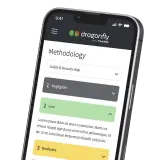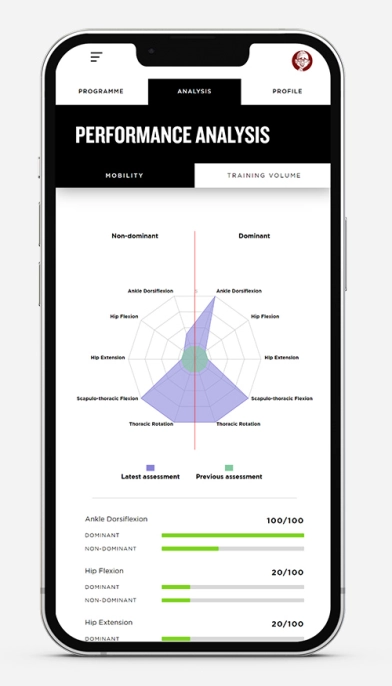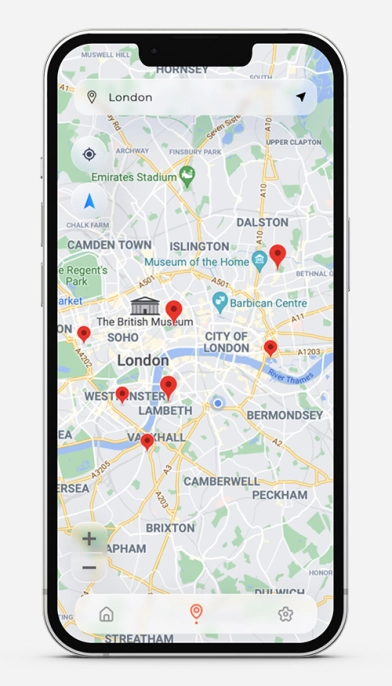In this thought-provoking episode of Tech Toolkit, we delve into the transformative impact of Artificial Intelligence on mobile app development, especially for small businesses poised to enter 2024 with a competitive edge. Host Andrew Ward from Scorchsoft unravels how AI is no longer just a supporting player but a central force in reshaping app experiences, making them more intuitive, personalized, and intelligent.
We examine the insights of industry experts like David DeSanto from GitLab and marketing guru Neil Patel to understand how AI optimizes coding practices, streamlines creative processes, and revolutionizes user engagement. Through practical examples and a compelling case study of Kaput's content creation business, we illustrate the tangible benefits of integrating AI into workflows – achieving efficiency, enhancing creativity, and driving strategic growth.
This episode tackles small businesses' challenges with AI integration, from cost and complexity to the lack of in-house expertise. Andrew provides actionable advice on navigating these issues, such as starting with manageable AI projects and the importance of continuous improvement.
Ethical considerations and data privacy are also highlighted, reinforcing the need for responsible AI deployment. We underscore the potential of AI to democratize technology for small businesses, enabling them to offer top-tier app experiences previously exclusive to larger enterprises.
Key Topics Covered:
- The critical role of AI in the future of app development
- Enhancing user experience through AI-driven algorithms
- The influence of voice and image recognition technologies
- Predictive analytics for personalized content and services
- Real-world case study of AI in podcast production
- Strategies for overcoming AI integration challenges for small businesses
- Ethical implications and best practices for AI in app development
- Actionable steps for small businesses to leverage AI effectively
Sources referenced in this cast:
- David DeSanto from GitLab comments on AI trends in software.
- The AI Marketing Show podcast which discusses their AI production approach.
- Neil Patel shows how human-ai collaboration delivers the best results.
Join us as we look ahead to the role of AI in app development for 2024, and discover how your business can embrace this revolution to thrive in the digital landscape.
Build a Custom ChatGPT App
Looking to build a custom ChatGPT-powered app for your business? Check out our product: ChatGPT App Booster - Build custom ChatGPT apps.
Full Podcast Transcript
Step into 2024, where AI is the new frontier in app development – find out how small businesses can harness this technology to drive growth and outsmart the competition.
Welcome to the Tech Toolkit Podcast, the go-to source for small businesses eager to leverage the latest technologies. I'm Andrew Ward, and in today's special episode I will venture into the intersection of AI and mobile app development as we look ahead into 2024.
This is particularly crucial for small businesses seeking to harness technology for competitive advantage and innovation. We'll explore how AI is not only changing the tech landscape but also offering new opportunities for businesses to engage customers, streamline operations, and stay ahead in a digital-first world.
Today, AI is not just a supporting tool; it’s a transformative force reshaping how apps are developed and experienced. It's bringing a revolution from the backend to the forefront, influencing everything from app design to user engagement. It’s clear that 2023 was the year that the world started to take AI seriously, and it’s clear that as we move forward from here, we will see it’s importance continue to grow.
For example, David DeSanto, from the Tech Startup GitLab, foresees 2024 as a landmark year where AI takes center stage in software development. This evolution sees AI optimizing coding practices, automating mundane tasks, and offering more personalized app experiences. It’s about creating apps that are not only functional but intelligent, capable of understanding and adapting to user preferences and behaviors.
Personally, I believe that AI is both a tremendous opportunity for those who learn to best leverage it, and an existential threat for those who don’t.
For small businesses, this shift presents enormous opportunities. AI integration means rich in-app experiences that truly resonate with users. We're looking at a future where apps are more responsive, intuitive, and capable of delivering tailored experiences that were once the domain of large enterprises.
But his integration is not without challenges. The complexity of AI technology and the need for specialized skills can be daunting. Small businesses must carefully choose development partners who can navigate these complexities and align AI integration with their unique business goals and customer needs.
We also cannot ignore the ethical implications of A.I. in app development. As we empower apps with more intelligence, questions around data privacy, user consent, and ethical A.I. use become paramount. Businesses need to adopt best practices in deploying A.I. technologies responsibly, ensuring they respect user privacy and data security.
Despite these challenges, the potential benefits are too significant to overlook. AI in app development is not just a trend; it's rapidly becoming a necessity. It offers a path to creating more dynamic, engaging, and valuable apps that can drive business growth and customer loyalty.
We also expect to see AI trends shape what businesses do with their tech. It's essential to understand how these innovations are creating new possibilities for small businesses. AI is not just about automating tasks; it's about enhancing the way businesses interact with their customers through technology.
Firstly, let's talk about Enhanced User Experience. AI-driven algorithms are now essential in making apps more intuitive and engaging.
By analyzing user behavior and preferences, AI can offer personalized recommendations and content, transforming the user experience from generic to genuinely customized. One of the most exciting aspects of this is the potential for small businesses to offer a level of user experience that was previously only attainable by larger companies with more resources.
This democratization of technology allows smaller players to compete more effectively in the digital marketplace.
Moving on to Voice and Image Recognition. These technologies are changing the way we interact with devices. Virtual assistants like Siri and Google Assistant, powered by natural language processing, are making user interactions more natural and intuitive.
But it's not just about convenience; it’s about creating a more human-like interaction with technology.
I expect to see many new and innovative ways to integrate with these assistants, opening a wealth of ways for your business to reach your users. This means apps that can understand and respond to voice commands, or use image recognition to offer enhanced services. For instance, a retail app could use image recognition to recommend products based on user preferences or a health app could use voice recognition to offer personalized health advice.
Next, let’s explore Predictive Analytics. AI’s ability to predict user needs based on data is revolutionizing app content. Predictive analytics enables apps to anticipate user needs and offer relevant content and recommendations, increasing engagement and retention.
This trend is particularly beneficial for small businesses in terms of marketing and customer relationship management. By leveraging predictive analytics, businesses can create targeted marketing campaigns and offer personalized services, leading to higher customer satisfaction and loyalty. A simple way to take advantage of this trend is to generate personalise emails to your users that consider their user data, such as their purchase history.
Each of these trends offers a unique opportunity for small businesses to elevate their app experiences. Whether it's through personalized content, intuitive user interfaces, or predictive services, AI is enabling small businesses to create apps that stand out in a crowded market.
In the following segments, we will provide practical examples and explore how these AI trends can be.
Let’s look at another example where Mike Kaput from "The Marketing AI Show" took things to the next level with A.I.
Mike’s team faced a common challenge: producing weekly podcast content was time-consuming, involving scriptwriting, recording, editing, and creating promotional materials. They needed a solution to streamline this process without compromising on quality.
Enter AI. They implemented AI tools for various stages of their production process. Firstly, AI was used to generate initial drafts of scripts, which were then refined by human writers. This blend of AI efficiency and human creativity significantly reduced scriptwriting time without compromising on quality or value to the listener.
For promotional content, AI tools were employed to create engaging graphics and email copy. This not only sped up the promotional phase but also introduced a new level of creativity and personalization in their marketing.
The result was astounding. By integrating AI into their workflow, Kaput’s team reduced the time spent on producing their weekly podcast by 75%. This efficiency gain allowed them to allocate more resources to content innovation and audience engagement strategies.
This case study is a powerful illustration of AI's potential in optimizing creative processes. It demonstrates how AI can be a force multiplier for businesses, enhancing productivity and freeing up resources for strategic growth areas.
It shows that AI integration isn’t just for large corporations with substantial budgets; even small teams can leverage AI to achieve significant efficiency gains and quality improvements.
We ought to consider the insightful perspectives of marketing expert Neil Patel, who firmly believes that humans working in tandem with AI yield the best outcomes – and he has the data to back it up.
In a thirty-day experiment featuring seven million dollars spent across Facebook ad sets for 28 different businesses, Neil and his team compared the effectiveness of AI-generated versus human-created ads.
Despite differing conversion goals—including email sign-ups, purchases, and leads—they tested a vast range of creatives: 1,709 crafted by humans and 4,041 produced by AI.
Following the standard practice of phasing out low performers and introducing new content, they found that human-generated ads trumped their AI counterparts 68.3% of the time, boasting higher conversion rates as well.
While the benefits of integrating AI in app development are clear, the path to successful implementation can be fraught with challenges. For small businesses especially, these challenges can seem daunting.
One major challenge is the cost and complexity of AI technologies. Small businesses often operate on limited budgets, making it crucial to choose AI solutions that offer a good balance between cost and functionality.
There is a lot to learn, and the pace of change is rapid. The last thing you want is to invest a lot of time implementing one AI tool, to have to scrap it and swap it out in six months’ time because you missed an alternative better suited to your needs. This is why, for now at least, I recommend sticking with the most popular tools like ChatGPT and Google Gemini until strong competition emerges to challenge their dominance.
Another hurdle is the lack of in-house AI expertise. Many small businesses may not have the technical know-how to implement and manage AI solutions. This gap can be bridged by partnering with specialized development agencies or investing in training for existing staff.
Identifying the right AI application for your business is also critical. It involves understanding your business needs, customer expectations, and the specific problems you aim to solve with AI.
Starting small is a wise strategy. Begin with a manageable AI project to learn and adapt. For instance, automating a single customer service process with an AI chatbot before scaling to more complex applications.
Monitoring and adapting is also key. AI integration is not a one-time process but a continuous cycle of improvement. Regularly evaluate the performance of your AI implementations and be ready to adapt your strategies based on feedback and results.
Lastly, ethical considerations and data privacy should be at the forefront of your mind. As you integrate AI, ensure you are adhering to best practices for data security and ethical AI use.
The successful implementation of AI in app development requires a strategic approach, balancing cost, complexity, and capability. With the right planning, partnerships, and ethical considerations, small businesses can effectively harness the power of AI. By overcoming these challenges, your business can unlock new opportunities and drive digital transformation.
It's clear that AI's role in app development is more than a fleeting trend; it's a fundamental shift in how we approach technology in the business world.
For small businesses, embracing these AI advancements is not just about keeping up with technological changes; it's about seizing opportunities to innovate, differentiate, and enhance customer experiences. The integration of AI in app development opens up a realm of possibilities, from creating more personalized user experiences to optimizing operational efficiency.
Remember, the future of app development is here, and it's powered by AI. Embrace this revolution, and let AI be the catalyst for your business's growth and success in 2024 and beyond.
If you're excited about harnessing the power of AI for your mobile app but unsure where to start, Scorchsoft is here to guide you. With our expertise in bespoke web and mobile application development, Scorchsoft can help you navigate the complexities of AI integration and ensure your app stands out in the digital marketplace.
Don't let the fast pace of technological change leave you behind. Visit scorchsoft.com or contact us to discuss how we can turn your app vision into a reality. Let's innovate together and propel your business forward with the transformative power of AI.











